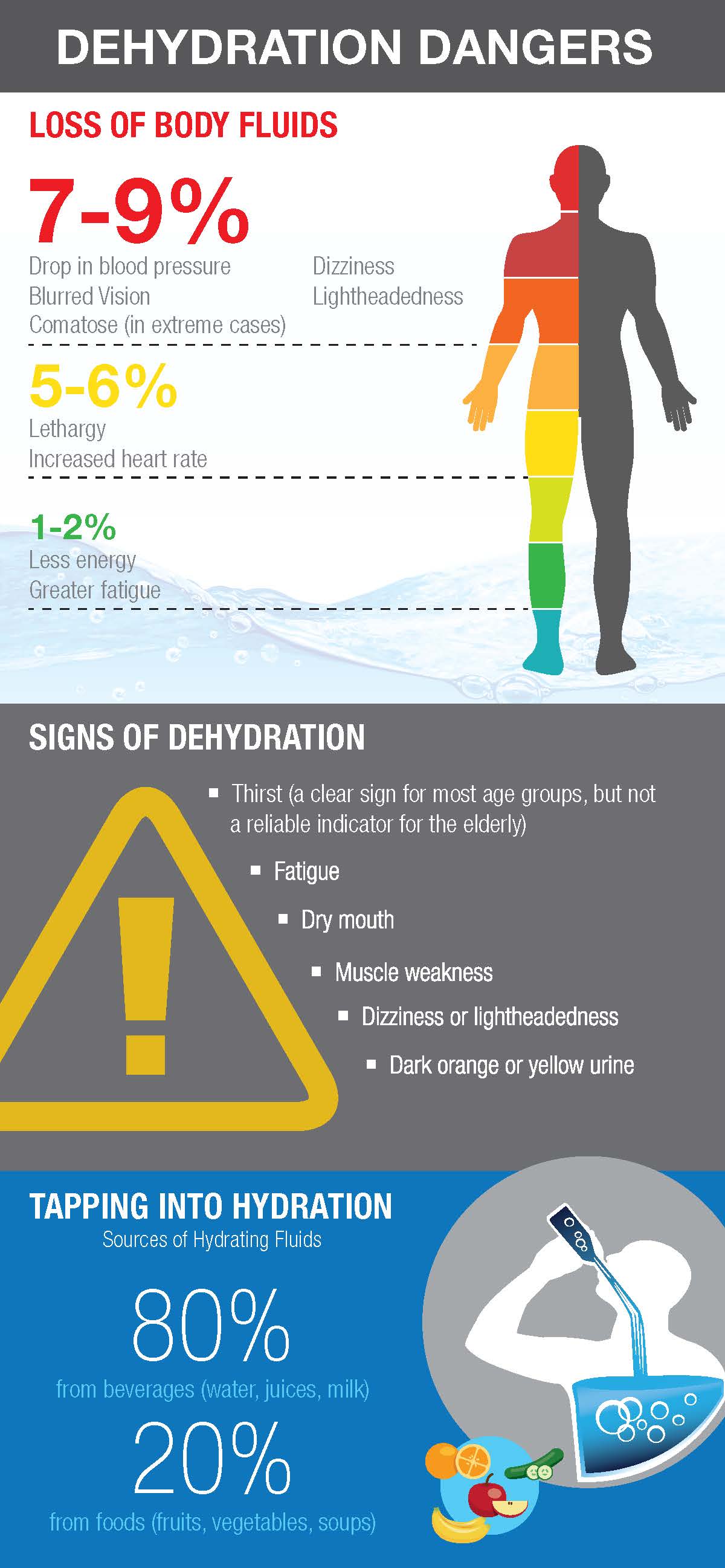April 7, 2020 by John Fernandez
Heat Advisory and Hydration Tips (Infographic)

Heat alert. For the first time in seven years, the National Weather Service on Tuesday issued a “Heat Advisory” for most of South Florida. The advisory was issued because the heat index for the region was expected to hit 110 degrees and posed a health risk for “vulnerable people and those working outdoors,” weather officials said. The heat advisory was in effect until early evening.
And for today, July 6, the National Weather Service issued a “Hazardous Weather Outlook” for the South Florida region, with yet another warning about possible health risks of extreme temperatures. The highest afternoon heat index readings will continue to range from 100 to 107 degrees through early next week, today’s advisory says. The heat index combines air temperature with relative humidity to determine a “feels like” effect on the body.
Fortunately, there are steps you can take to reduce the risk. (Please see the infographic below.)
“With the hot and humid weather the last few days and unusually warm overnight lows, there is a threat for heat exhaustion,” according to the weather alert. “Take extra precautions if you work or spend time outside.”
Beat the Heat Strategies
Here are hot weather strategies from the National Weather Service:
- When possible, reschedule strenuous activities to early morning or evening.
- Know the signs and symptoms of heat exhaustion and heat stroke.
- Wear light-weight and loose-fitting clothes.
- Drink plenty of water.
While our tropical mix of heat and humidity rarely jumps higher than the mid-90s, active South Floridians (particularly outdoor laborers and those trying new exercise routines such as jogging, cycling or even brisk walking) need to protect themselves from dehydration.
Dehydration occurs when you lose more fluid than you take in, and your body doesn’t have enough water and other fluids to carry out its normal functions. If you don’t replace lost fluids, you may become severely dehydrated. Severe dehydration requires immediate medical attention to avoid progression to heat stroke, which can result in death or cause damage to the brain and other internal organs.
Common causes of dehydration include intense diarrhea, vomiting, fever or excessive sweating. Not drinking enough water during hot weather or exercise also may cause dehydration. Anyone may become dehydrated, but young children, older adults and people with chronic illnesses are most at risk.
However, dehydration is quite preventable, even in the Miami heat and humidity. The problem with South Florida’s unique climate is that humidity affects how easily sweat evaporates from skin. Sweat must be evaporated to cool off the body. When humidity is 60 percent or greater, it is difficult for sweat to evaporate into the air.
“Sweat is our body’s way of keeping cool, but when we perspire we lose body fluids and that can lead to dehydration,” said Agueda Hernandez, M.D., medical director of the Baptist Health Primary Care Family Medicine Center at West Kendall Baptist Hospital. “Drinking water or other fluids is a must before you head outdoors to exercise. And keeping hydrated during intense running or other activity in the heat is vital.”
Here are some tips to staying hydrated during exercise or outdoor activities:
- Drink plenty of water before, during, and after exercise.
- Take a container of water or sports drink with you when you exercise.
- Try to drink at least every 15 to 20 minutes, or as needed.
- Use a sports drink if you will be exercising for longer than one hour.
- Do not drink coffee, colas, or other drinks that contain caffeine. They increase urine output and make you dehydrate faster.
- If you are on a high-protein diet, make sure that you drink at least 8 to 12 glasses of water each day.
- Avoid alcohol, including beer and wine. They increase dehydration and make it hard to make good decisions.
- If possible, exercise very early in the day or very late to avoid the hottest parts of the day.
top stories













There are no comments